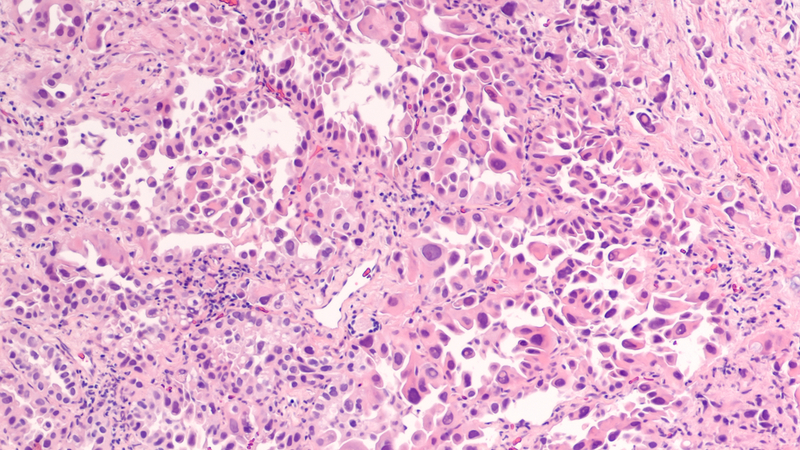100-year-old scientific mystery solved: Researchers discover role of nuclear glycogen in non-small cell lung cancers
MedicalXpress Breaking News-and-Events Sep 17, 2019
Researchers at the University of Kentucky Markey Cancer Center have made a breakthrough discovery that solves a mystery long forgotten by science and have identified a potentially novel avenue in pre-clinical models to treat non-small cell lung cancers.

Published in Cell Metabolism, the research centers on the function of glycogen accumulation in the nucleus of a cell. Glycogen is known as a carbohydrate energy storage molecule for cells. Its presence was first described in the nucleus in the 1890s, but no functional role had been described for nuclear glycogen—unlike glycogen stored by the liver or muscle tissue, which is used as a form of energy in various parts of the body.
Scientists from the UK Department of Molecular and Cellular Biochemistry, led by Ramon Sun, PhD, and Matthew S. Gentry, PhD, have discovered that human non-small cell lung cancers accumulate nuclear glycogen during the formation of tumors, providing an opportunity to finally reveal the biological role of nuclear glycogen.
"Nuclear glycogen was first reported in the 1890s and its role in cellular metabolism and impact on disease has been elusive," Sun said. "Glycogen is a storage molecule for fuel reserve, but this study demonstrates other functions of glycogen metabolism including epigenetics. Our team demonstrated that nuclear glycogen metabolism modulates the regulatory components of gene expression that are necessary for cancer progression."
While nuclear glycogen accumulation has been reported in multiple cancers, this study demonstrates that glycogen is synthesized and broken down in the nucleus, that nuclear breakdown provides the fuel for histone modifications, and that these modifications allow cells to become cancerous. Non-small cell lung cancers suppress nuclear glycogen breakdown by decreasing the amount of a key signaling molecule called malin to drive cancer progression.
"We developed a novel nuclear-specific tracer technology coupled to high-resolution mass spectrometry to trace nuclear glycogen metabolism and discovered that it modulates histone acetylation," Sun said. "We then identified the key signaling events that regulate this newly described cellular process and demonstrated its importance in pre-clinical lung cancer models."
The study provides important insights into the foundation of cell metabolism, epigenetics and cancer biology. Additionally, the work reveals possible therapeutic targets to develop future platforms for the treatment of lung cancers.
"Nuclear glycogen exists in many other cancers as well," Gentry said. "This study can open doors to other possibilities for potential anti-cancer therapies."
The study showcased a collaborative approach from a multidisciplinary team that also included Christine Brainson, PhD, from the UK Department of Toxicology and Cancer Biology and Dana Napier from the Biospecimen Procurement & Translational Pathology Shared Resource Facility of the UK Markey Cancer Center. The team employed innovative technologies, and the wealth of human lung cancer specimens collected at the UK Markey Cancer Center to answer the complex biological questions that encompassed this scientific question. The work was funded by the National Institutes of Health, UK Markey Cancer Center, and the American Cancer Society.
Next, Sun will further his investigations into the role of aberrant glycogen in Ewing Sarcoma. In July, he received the St. Baldrick's Scholar award for pediatric oncology research, funding work on this project at $110,000 a year for up to five years. Ewing Sarcoma is a rare bone cancer that currently affects children and young adults typically aged between 5 and 16.
-
Exclusive Write-ups & Webinars by KOLs
-
Daily Quiz by specialty
-
Paid Market Research Surveys
-
Case discussions, News & Journals' summaries